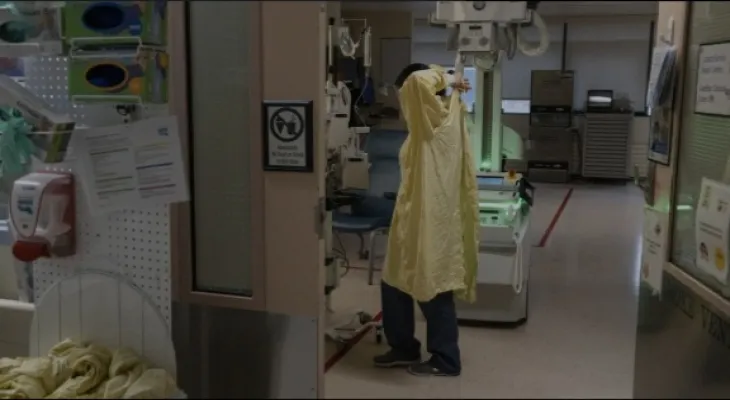Search here
Newspaper
Search here

Arab Canada News
News

Published: April 22, 2023
The Canadian Ministry of Health has approved a new antibody drug to help protect children from serious diseases caused by the respiratory syncytial virus (RSV).
Nirsevimab, also known by its brand name Beyfortus, was licensed on April 19 and developed by AstraZeneca and Sanofi.
For his part, Mark Johnson, a spokesperson for the Canadian Ministry of Health, said in an email to The Canadian Press on Friday that Nirsevimab is a "monoclonal antibody for the prevention of serious lower respiratory tract disease caused by respiratory syncytial virus (RSV) infection in newborns and infants during their first RSV season."
He also added that the drug, which is administered by injection, is also authorized for children up to the age of two if they are at risk of severe infection.
What happens when an infant contracts RSV:
Canada already provides the monoclonal antibody palivizumab - also known by the brand name Synagis - to premature infants because they are more susceptible to serious RSV disease. The National Advisory Committee on Immunization (NACI) does not recommend palivizumab for healthy children.
Palivizumab must be injected once a month - up to four times - during the RSV season to remain effective. Nirsevimab requires only a single dose that lasts throughout the entire RSV season.
Although the Canadian Ministry of Health has permitted the use of nirsevimab for all children, it is unknown whether it will be administered widely.
It is up to the provinces and territories to determine who receives the injection, often based on recommendations from the Canadian Agency for Drugs and Technologies in Health (CADTH).
The Canadian Ministry of Health also stated that, pending CADTH recommendations, nirsevimab is expected to be “available for limited use during the Fall/Winter 2023/2024 season.”
Comments